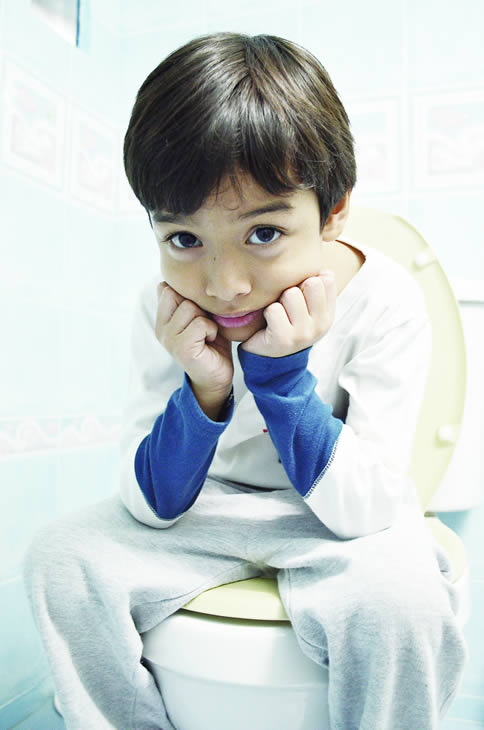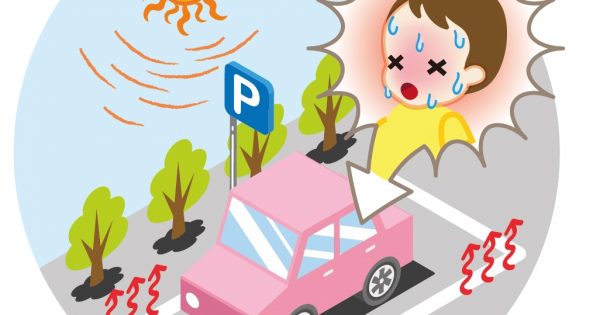Diarrhoea is a common condition that can yield dangerous consequences, especially on your infant’s health. Find out what you can do to prevent this messy and potentially fatal problem.
Everybody gets diarrhoea at some point in their lives. It is our body’s way of ridding itself of germs. Diarrhoea can be caused by many factors, ranging from food poisoning to viral infections.
Rotavirus is the most common viral cause of diarrhoea in infants and children worldwide, according to the US Centres for Disease Control and Prevention. Before the development of a vaccine, almost all kids will develop a rotavirus infection by the time they are five years old.
Most rotavirus infections can be treated at home with extra fluids to prevent dehydration. However, more serious cases of infection can cause you or your child more than just urgent and perpetual runs to the bathroom.
Diarrhoea cases caused by rotavirus can result in gastroenteritis, a potentially severe infection that could lead to severe and dehydrating diarrhoea in infants and young children. It is estimated that about 500,000 children worldwide die from diarrhoea caused by the virus every year.
Read on to find out how you can protect your child and your family from contracting this messy and potentially fatal condition.
Frequently Asked Questions (FAQ)
1. What causes diarrhoea?
Most diarrhoea cases result from poor hygiene. Your child can come in contact with viruses, bacteria or parasites that cause diarrhoea when he consumes contaminated food and drinks, or meals that have not been cooked properly or thoroughly. He could also pick up these disease causing agents when he touches contaminated surfaces and then puts his fingers into his mouth.
Diarrhoea infections can spread through contact with some pets or direct contact with faecal matter (i.e. from dirty diapers or the toilet).
Food intolerances and sensitivities can also cause your child to have diarrhoea. For example, children who are lactose intolerant may have diarrhoea if they consume the milk compound in excessive quantities. A reaction to medicines, to antibiotics, or antacids which contain magnesium can also cause diarrhoea.
2. Is diarrhoea dangerous?
It can be. Diarrhoea lasting more than two days may be a sign of a more serious problem. Chronic diarrhoea (diarrhoea that lasts at least four weeks) may be a symptom of a chronic disease e.g. irritable bowel disease (IBD) or irritable bowel syndrome (IBS), Crohn’s disease or ulcerative colitis.
Diarrhoea for however long it lasts can cause a serious complication – dehydration. This means that your child experiences a severe loss of water and body salts that help his body function properly. If the water and salts are not replaced fast, the body starts to “dry up” or get dehydrated. Your child may then require hospitalisation to replace the lost fluids intravenously. Severe dehydration can cause kidney failure and/or death.
3. What symptoms of diarrhoea should I watch out for?
When organisms like bacteria, viruses or parasites attack the intestines, they can cause signs and symptoms such as:
- abdominal cramps and pain
- fever
- loss of appetite
- nausea
- vomiting
- weight loss
- watery usually non-bloody diarrhoea
- dehydration
The following signs indicate dehydration and you should immediately consult a doctor if your child has any of them. They include lethargy or irritability, high fever, no wet diapers for three hours or more (for infants), absence of tears when crying, sunken eyes and fontanelle (soft spot on the head of infants) and visible blood in their stools (appearance of red currant jelly).
4. When should I take my child to the doctor?
When your child starts showing the following signs, don’t hesitate to take him or her to the clinic or hospital. They include:
- signs of dehydration
- diarrhoea for more than 24 hours
- a fever of 38.5°C (approximately 102°F) or higher
- stools containing blood or pus
- stools that are black and tarry
5. How will my child’s diarrhoea be treated?
In most cases of diarrhoea, the only treatment necessary is replacing your child’s lost fluids and electrolytes through oral rehydration solution (ORS) to prevent him or her from becoming dehydrated. Depending on the cause of the problem, medication may also be needed to stop the diarrhoea or treat an infection e.g. antibiotics, but these are rarely needed.
You should also ensure that your child stays hydrated by drinking plenty of clear liquids in small, but frequent amounts. Children who drink enough water and ORS to replace the fluids lost through vomiting and diarrhoea will not suffer from dehydration. Some probiotics have a limited role in diarrhoea but may be prescribed by some doctors.
If you are breastfeeding your infant with diarrhoea, continue to breastfeed him or her as breast milk contains antimicrobial factors that help to boost your baby’s immune system thus leading to fast recovery during illness. Formula milk need not be diluted as this will reduce the nutrient content.
Diarrhoea and dehydration can make your child weak and tired, so it is important that you ensure your child gets plenty of rest.
6. How can I protect my child from diarrhoea?
The most important thing is practicing proper hygiene and hand-washing. Another effective way to prevent diarrhoea from a rotavirus infection is through vaccination. In Malaysia, the rotavirus vaccine is given orally, in two or three doses (depending on the vaccine manufacturer), and it can only be given to infants who are less than six months of age. It is advisable to consult with your child’s paediatrician to know more about this vaccine. For older children and adults, who are not as likely to develop serious symptoms of rotavirus, washing your hands frequently is the best line of defence.
Diarrhoea is a problem that is easily prevented. Hygienic food storage and preparation, as well as a clean and well-maintained environment, can help keep tummy troubles out of the picture. Vaccination is also an additional method in ensuring your child’s gut health.







Comments